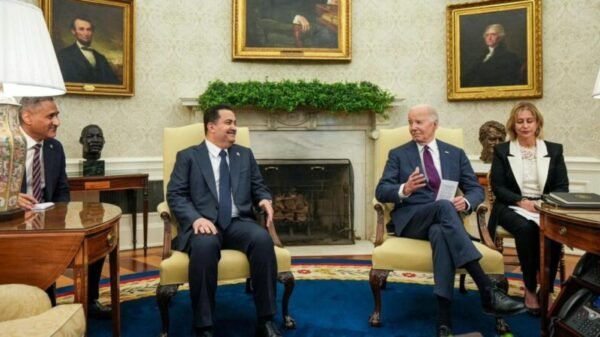Israel and Iran: Downplay Apparent Strike: Could Muted Responses Ease Tensions
Israel and Iran have both sought to downplay the recent escalation of tensions between them, signaling a cautious approach to prevent further escalation into a full-scale regional conflict. Despite a series of incidents, including an alleged Israeli airstrike near a significant air base and nuclear site in central Iran, neither side seems eager to escalate the situation into open warfare.
However, the unresolved nature of these tensions, characterized by sporadic violence and retaliatory strikes, underscores the deep-rooted animosity between Israel and Iran. The recent events, while not leading to an all-out war, have highlighted the ongoing friction and the potential for further clashes.
Israel has long regarded Iran as its primary adversary due to Tehran’s repeated calls for Israel’s destruction, its contentious nuclear program, and its support for militant proxies across the Middle East. This animosity has been exacerbated by recent hostilities between Israel and Iranian-backed groups such as Hamas and Islamic Jihad in Gaza, as well as Hezbollah in Lebanon.
The situation escalated further following an airstrike on April 1 that killed two Iranian generals at a diplomatic compound in Damascus, Syria. While Israel did not officially claim responsibility for the attack, Iran accused Israel of orchestrating it and vowed retaliation.
In response, Iran launched its first-ever direct assault on Israel, firing over 300 missiles and drones late at night. Although Israel claimed to have intercepted the majority of the incoming projectiles, some missiles caused minor damage and injuries.
The latest incident on Friday involved Iranian air defense systems firing at suspected drones in the sky over Isfahan. While Iranian officials confirmed the firing, they stated that it did not result in any damage.
These recent developments have underscored the precarious nature of the relationship between Israel and Iran, with both sides wary of further escalation but also unwilling to back down completely. The potential for miscalculation or unintended consequences remains high, given the volatile dynamics in the region.
Despite the efforts of the international community to defuse tensions, the underlying grievances between Israel and Iran persist, fueling ongoing hostility and periodic outbreaks of violence. As long as these root causes remain unaddressed, the risk of further escalation will continue to loom large over the Middle East.












































Comment Template